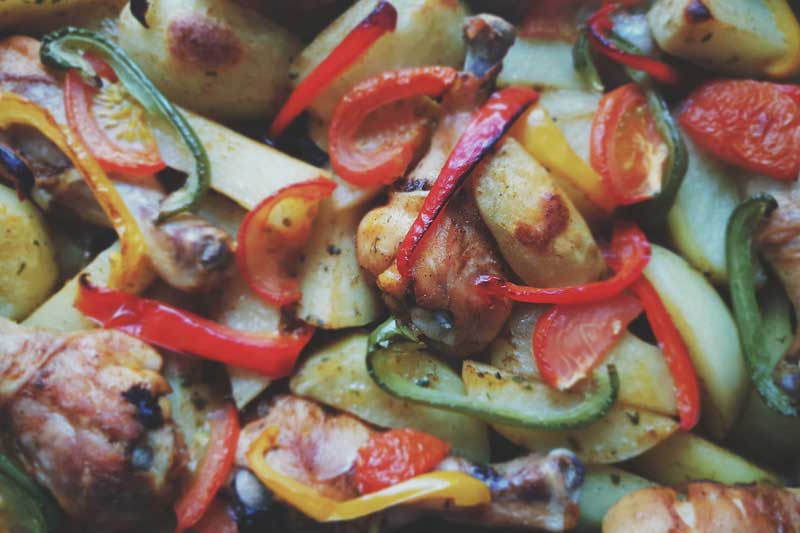In this world we live in there are many different diets, and everyone has an opinion on what is the best type of diet. There is Keto, Paleo, Weight Watchers, Zone, Atkins, South Beach, and many others. Everyone who goes on a particular diet and follows that diet will say that is the best and they will actually recommend this diet to others. You might be thinking – what is the best diet for me – that answer is the one that works the best for you. This is because everyone is created differently, so the diet that works best for you, may or may not work well for me. Something to keep in mind is to eat a diet of high-quality food — avoid processed and fast food. The best thing is a diet that is high in nutrients, and processed food is not high in nutrients. So, let’s talk about a diet that is high in nutrients – a whole food, plant-based diet. You are probably thinking I like meat, or I don’t like veggies, or I like burgers and fries. I understand that – I like burgers, fries, wings, pizza, and many other foods that aren’t necessarily the healthiest, but as I have been studying the different diets it seems that the healthiest is a whole food, plant-based diet.
Let’s talk about the plant-based diet, and its basics:
- Emphasizes whole, minimally processed foods.
- Limits or avoids animal products.
- Focuses on plants, including vegetables, fruits, whole grains, legumes, seeds and nuts, which should make up the majority of what you eat.
- Excludes refined foods, like added sugars, white flour and processed oils.
A Whole Foods Diet, unlike a vegetarian or vegan diet is very flexible as animal proteins are not off limits – if it is your desire you can eat small amounts of eggs, poultry, seafood, meat or dairy. I would say though that you should make sure these products are organic, grass fed, or free-range. It’s because beef that is grass fed, or chicken that is free-range, or fish that is wild caught will be high in nutrients.
A Whole Foods Diet or Plant-Based Diet has many health ramifications, let’s go over these –
Obesity: The high fiber content of the plant-based diet along with removing processed foods helps in shedding those excess pounds. Also, a review of various studies shows that those who ate a plant-based diet lost on average 4.5 pounds more than those on other diets. In addition, it has been shown to keep the weight off over the long run.
Heart Disease: One of the major benefits of a plant-based diet is that they are heart-healthy. It matters of course on the food items in your plant-based diet. Those who follow a healthy plant-based diet rich in vegetables, fruits, whole-grains, legumes and nuts have a significantly lower risk of developing heart disease than those following non-plant-based diets. However, unhealthy plant-based diets that include sugary drinks, fruit juices and refined grains are associated with a slightly increased risk of heart disease.
Cancer: In terms of cancer prevention, the nutrients found in plant-based foods — including vitamins, minerals, phytochemicals and fiber — have been shown to reduce risk of several types of cancer.
Cognitive Decline: A review of nine studies have shown that a diet rich in fruits and vegetables – a plant-based diet; high in plant compounds and antioxidants may help to slow or prevent cognitive decline and the onset of Alzheimer’s disease.
Diabetes: Various studies have shown that people who eat a plant-based diet have more than a 30% lower risk of developing diabetes. In addition, it has been shown to reduce blood sugar by more than 50% in those who have diabetes.
When switching to a plant-based diet, meals should center around plant-based foods, foods that are natural – fruits, veggies (starchy and non-starchy), whole grains (brown rice, quinoa, rolled oats), healthy fats (avocados, olive oil, coconut oil), seeds, nuts and nut butters (peanut butter, cashews, almonds, almond butter, sunflower seeds), unsweetened almond milk, black beans, lentils, chickpeas, salsa, nutritional yeast, soy sauce, vinegar, coffee, tea, spices, herbs, and plant based protein powders.
When eating a plant-based diet avoid fast food, refined grains (white rice, white pasta, white bread, bagels, etc.), added sugars and sweets, cereal bars, chips, crackers, packaged and convenience foods, artificial sweeteners, processed animal products (bacon, sausage, lunch meats). Basically, don’t skimp on your nutrition – if you are going to go plant-based, don’t eat the cheap fake foods, as it will have no health benefits.
If you have any questions on any healthy eating plan, a whole foods or plant-based diet, or any other eating plan, please contact me and I can help you.

